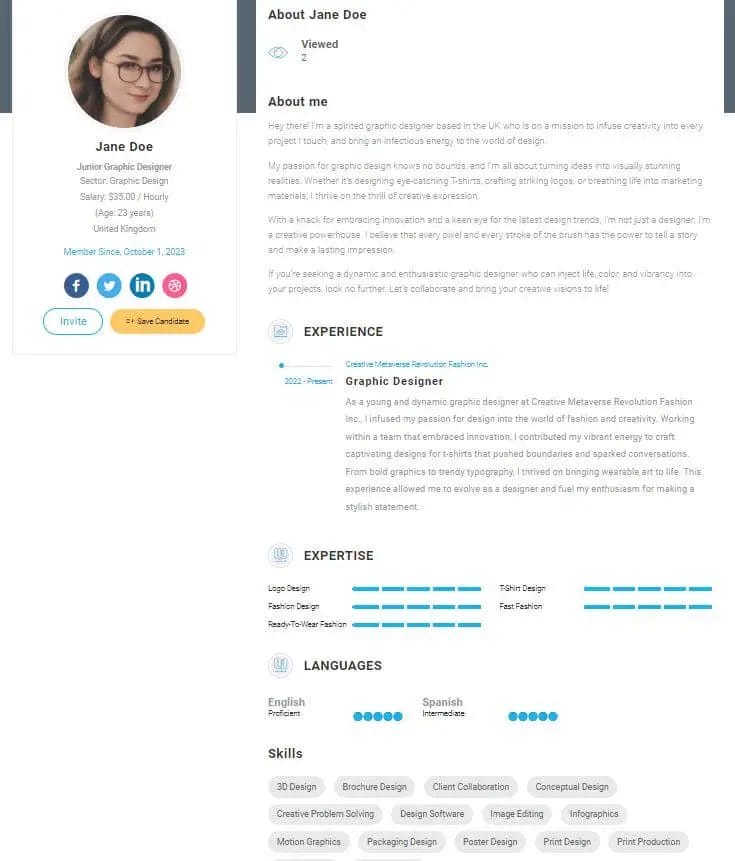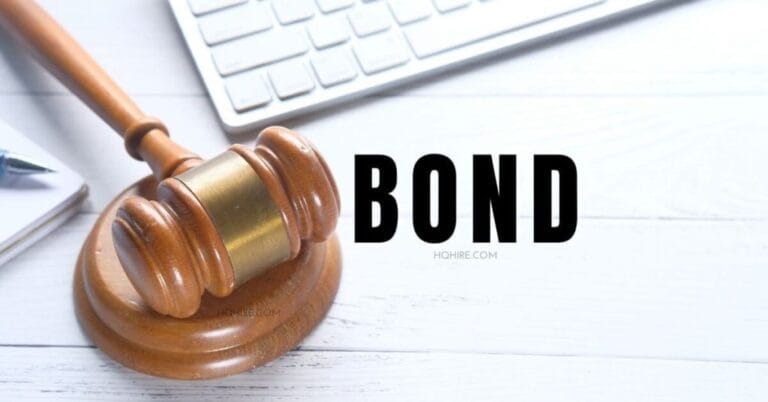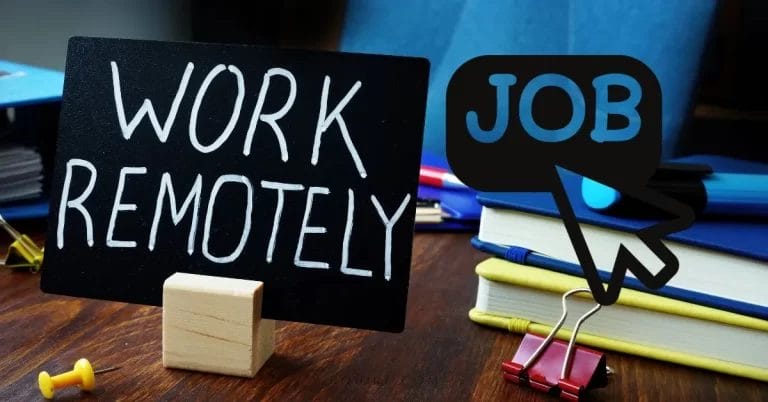|
Listen To Article
Getting your Trinity Audio player ready...
|
The field of blockchain development is rapidly evolving, fueled by a surge in demand across various sectors looking to leverage the robustness and transparency of blockchain technology.
As a blockchain developer, you’ll create innovative solutions that redefine how data is stored, and transactions are executed. Your role as a developer will be pivotal in developing this architecture and ensuring that businesses can transact with undeniable security and efficiency.
As a blockchain developer you get paid an average of $110K per year, this is way above the average hourly pay range of most remote jobs.

Starting a career in blockchain development requires a mix of technical skills and a deep understanding of how decentralized technologies operate within diverse industries.
Key Takeaways
- Aspiring blockchain developers will architect and implement solutions that revolutionize data security and transactional integrity.
- A blend of technical expertise and knowledge in decentralization is essential for career success in this dynamic field.
- The high demand for skilled blockchain developers signals a promising career with competitive compensation.
What is a Blockchain Developer?
Blockchain developers are specialized software professionals who focus on blockchain technology. Blockchain refers to a decentralized digital ledger that records transactions securely over multiple computers. This prevents unauthorized alterations, making the technology highly secure and trustworthy.
Blockchain development involves more than just creating applications. You need to understand blockchain protocols and design network architecture that can centralize or decentralize data.
Core Blockchain Developer vs. Blockchain Software Developer
| Core Blockchain Developer | Blockchain Software Developer |
|---|---|
| Designs security and architecture | Uses core architecture to create applications |
| Creates blockchain foundation | Develops decentralized applications (dApps) |
| Sets up blockchain protocols | Works on smart contracts |
Core Blockchain Developers lay down the underlying framework of a blockchain system. They are in charge of deciding the architecture and ensuring the security of the overall system.
Blockchain Software Developers build upon the foundation laid by the Core Developers. They craft the web applications that interact with the blockchain, often focusing on decentralized applications, known in the industry as dApps.
What Do Blockchain Developers Do?
Blockchain developers play a pivotal role in developing innovative technologies that reshape industries. These professionals are integral to creating decentralized applications that run on blockchain technology.
Roles And Responsibilities Of Blockchain Developer
As a blockchain developer, your primary responsibilities include working on various aspects of blockchain technology. This means you’ll be directly involved in creating the backbone of decentralized applications. Your job entails:
- Designing Blockchain Protocols: Crafting rules that enable blockchain functionality.
- Developing Smart Contracts: Programming contracts that execute automatically under specified conditions, typically using Solidity, a language specifically for Ethereum smart contracts.
- Creating Front-End and Back-End Development: Developing user interfaces with JavaScript and building the server-side of DApps that users interact with.
- Ensuring Security: Safeguarding the application from cyber threats by implementing advanced security protocols.
- Maintaining and Testing the Network: Regularly maintaining the network, updating code, and testing systems to ensure seamless functionality.
You might work with legacy systems and integrate them within the blockchain or implementing decentralized cryptosystems.
Blockchain Developer Career Pathway
You might be wondering about the career pathway that leads to becoming a successful blockchain developer. Here’s what you typically need to know:
- Learning Programming Languages: Proficiency in languages like Python, Java, JavaScript, and Rust is essential. Focus on object-oriented languages for core development tasks.
- Understanding Core Blockchain Principles: Grasp key blockchain concepts such as cryptography, consensus algorithms, and blockchain architecture.
- Specializing in a Programming Language: While being versatile is beneficial, specializing in a language used for smart contracts, like Solidity, can give you an edge.
- Gaining Practical Experience: Strengthening your coding and blockchain skills through hands-on projects is crucial for landing a role in this field.
- Focusing on Security and Database Management: As blockchain is based on distributed ledger technology, security and database management form an important part of your responsibilities.
Common Career Paths
| Entry-Level | Mid-Level | Senior-Level |
|---|---|---|
| Blockchain Developer | Senior Blockchain Developer | Blockchain Project Manager |
| Smart Contract Developer | Blockchain Security Expert | Blockchain Solution Architect |
| DApp Developer | Blockchain Consultant | Chief Blockchain Officer |
Develop your expertise in programming languages and work efficiently with databases and security measures to excel as a blockchain developer.
Explore the uses of smart contracts, and understand the importance of each language, like Solidity for Ethereum-based projects, to create impactful blockchain applications.
Blockchain Developer Skills
As an aspiring blockchain developer, your skill set must be broad and proficient. Blockchain technology combines various disciplines and mastering them is crucial to your success. As a blockchain developer, you will:
- Employ strong programming skills to develop software.
- Design blockchain protocols.
- Create the network’s architecture.
- Develop back-end systems according to these protocols.
- Construct front-end interfaces based on client specifications.
- Monitor and maintain smart contracts.
Programming Languages
You need to be well-versed in several programming languages that are pivotal for blockchain development. Here’s a breakdown of the most common ones:
| Language | Usage |
|---|---|
| Solidity | Writing smart contracts on Ethereum. |
| Python | Data analysis, prototyping, and scripting. |
| Java | Enterprise blockchain solutions. |
| JavaScript | Front-end development for dApps. |
| Rust | Performance-intensive blockchain systems. |
These languages enable diverse functionalities, from creating smart contracts to building full-scale decentralized applications (dApps).
Cryptography
A strong foundation in cryptography is non-negotiable. It’s the science that keeps the blockchain secure. You should understand:
- Public-key cryptography
- Hash functions
- Digital signatures
This knowledge ensures transaction security and data integrity on the blockchain.
Core Blockchain Concepts
You must grasp core blockchain principles. This includes:
- How blocks are created and linked.
- Consensus models like Proof of Work (PoW) and Proof of Stake (PoS).
- Decentralization and its implications on security and database management.
Understanding these concepts allows you to design systems that are not only secure but also aligned with blockchain’s transformational ethos.
Smart Contract and dApp Development
Creating smart contracts is a crucial skill. Develop the ability to write, test, and deploy smart contracts which are crucial for automating processes. Additionally, familiarity with the Ethereum Virtual Machine (EVM) and development frameworks is important for dApp development.
Blockchain Security
Focus on security practices to safeguard networks against malicious attacks. This encompasses both cryptographic security methods and general best practices for network security.
How to Become a Blockchain Developer (Step Guide)
1. Grasp the Basics
To kick things off, you need a firm understanding of blockchain fundamentals. Learn about the different types of blockchains like public, private, and consortium. Grasp key concepts such as consensus mechanisms, smart contracts, and decentralization.
2. Choose Your Path
| Core Blockchain Developer | Blockchain Software Developer |
|---|---|
| Focus on network architecture | Create dApps and smart contracts |
| Design consensus protocols | Implement protocols in application development |
| Ensure blockchain security | Work on front-end and back-end of applications |
3. Master the Skills
Your coding skills are your toolbox. Gain proficiency in programming languages like Java, C++, Solidity, and Python. Understand data structures and cryptography to secure information within the blockchain.
4. Build with Tools and Platforms
Grab the tools that blockchain developers use.
Practice with platforms including Ethereum and Hyperledger.
Explore different protocols and learn how to design decentralized applications.
5. Gain Relevant Knowledge
Beyond coding, you must understand cryptoeconomics, blockchain’s role in various fields, and the security aspects of the technology.
Follow tech blogs, watch tutorials, and sign up for tech newsletters.
6. Get Hands-On Experience
Create your own projects or contribute to open-source ones.
Gain experience by building and deploying smart contracts and decentralized apps.
7. Get Certified
Certifications can validate your knowledge.
Look into courses offering certifications in blockchain development to strengthen your professional credibility.
8. Seek Job Opportunities
With the market growing, jobs are plentiful. Look for positions that match your skill set.
Craft a resume that highlights your blockchain experience and skills.
Embark on this journey, and you could be at the forefront of shaping the future of technology. Your potential as a blockchain developer is vast and required across numerous industries.
Get your 100% Free online resume and get noticed by potential employers. Start out of the crowded space of millions of remote job seekers and find the remote job that you will enjoy and love.

- How to Become a Remote Developer: Your Complete Guide to a Digital Nomad Career
- How to Become a Blockchain Developer: Complete Guide to a Career in Blockchain Technology
- How to Become a SQL Developer: Complete Guide to a Career in Database Development
- How to Become a Freelance Travel Writer (Step-by-Step Guide)
- How to Become a Remote Freelance Technical Writer (Step Guide)
Join over 11,000+ achievers who are committed to achieving their career goals!






